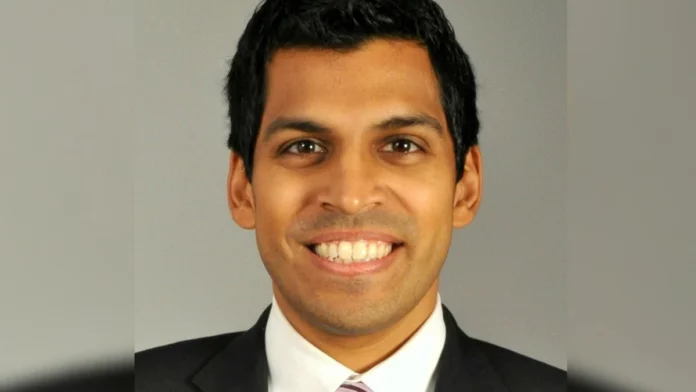OpenAI, one of the most influential players in the artificial intelligence (AI) space, recently made a significant appointment by naming Aaron Chatterji as its first-ever Chief Economist. This move reflects OpenAI’s growing focus on understanding the economic impact of AI as it continues to evolve rapidly. But what does this appointment signify, and why is it so important? In this article, we will explore Chatterji’s role, his background, and the broader implications for OpenAI and the global economy.

Why OpenAI Chose Aaron Chatterji
The decision to appoint Aaron Chatterji as OpenAI’s Chief Economist is a clear indication of the organization’s desire to deepen its research into the economic ramifications of AI. Chatterji brings a wealth of experience, having previously served as Chief Economist at the U.S. Department of Commerce under President Joe Biden. Additionally, his role as a senior economist in President Barack Obama’s Council of Economic Advisers further solidifies his credentials as a leading expert in the intersection of policy, economics, and technology.

At OpenAI, Chatterji will focus on how AI impacts economic growth, job markets, and industries. His research will help OpenAI and policymakers navigate the challenges and opportunities brought on by AI-driven economic transformation. This strategic hire reflects OpenAI’s broader goal of ensuring that AI’s development aligns with economic stability and job creation, addressing growing concerns about automation and its effects on the workforce.
What Chatterji Brings to OpenAI: A Blend of Economics and Policy Expertise
Chatterji’s unique background positions him as the perfect fit for OpenAI. Not only does he have a strong academic foundation, having earned a B.A. in Economics from Cornell University and a Ph.D. from the University of California, but he also has experience at the highest levels of U.S. government policy-making. This blend of theoretical knowledge and practical policy implementation makes him a valuable asset for OpenAI as it embarks on new economic research endeavors.
His work on the 2022 CHIPS Act, which allocated $280 billion for U.S. computer chip development, is particularly relevant to OpenAI. The company has expressed interest in chip design as part of its broader AI efforts, and Chatterji’s expertise in this area could provide a strategic advantage. OpenAI is positioning itself to remain at the forefront of AI hardware and software development, and Chatterji’s background will likely contribute to this ambition.
How AI and Economics Intersect at OpenAI
With OpenAI leading the charge in AI research and applications, understanding the economic consequences of these advancements is crucial. AI is already transforming industries, from healthcare to transportation, and its impact on job markets and economic systems is inevitable. Automation, job displacement, and the creation of new roles will challenge governments and businesses alike. Chatterji’s role at OpenAI will involve analyzing these trends, providing insights into how AI can be leveraged to foster sustainable economic growth while mitigating the downsides.
His research at OpenAI will likely focus on the delicate balance between technological innovation and economic inequality. As AI tools become more integrated into daily life, ensuring that their benefits are broadly distributed will be key. By examining how AI can contribute to productivity while avoiding large-scale job loss, OpenAI under Chatterji’s guidance can influence policy decisions that shape the future of AI-driven economies.
The Strategic Importance of OpenAI’s Chief Economist Role
By creating the Chief Economist position, OpenAI is signaling that it is not just focused on technological breakthroughs but also on the broader societal and economic implications of AI. This is essential as AI continues to disrupt various sectors. Chatterji’s expertise will help the company anticipate economic challenges, including potential regulatory hurdles, and identify ways to integrate AI in a manner that benefits both businesses and the labor force.
Furthermore, OpenAI’s move to bring on board such high-profile experts, including Chatterji and its new Chief Compliance Officer, Scott Schools, reflects a growing recognition of the need for ethical oversight and regulatory compliance in AI development. As AI technologies become more embedded in society, the potential for misuse grows, and ensuring that OpenAI operates within ethical boundaries is crucial for maintaining public trust.
The Challenges Ahead for OpenAI and Aaron Chatterji
One of the key challenges for OpenAI and Chatterji will be addressing the growing public concern about AI’s impact on employment. Automation is expected to disrupt various industries, and while some jobs may be eliminated, others will be created. How OpenAI navigates this shift will be central to its long-term success. Chatterji’s research could provide valuable insights into how companies and governments can prepare for this transition, ensuring that displaced workers are retrained and new job opportunities are developed.

Moreover, OpenAI will need to address the potential for economic inequality exacerbated by AI. Without proper policies in place, the benefits of AI could disproportionately favor those who already have access to education and technological resources. Chatterji’s role will likely involve advising OpenAI on how to create inclusive economic strategies that maximize the positive impacts of AI across all demographics.
The Future of OpenAI and Economic Research
With Chatterji at the helm of economic research, OpenAI is well-positioned to lead the conversation on how AI can contribute to economic stability and growth. His work will undoubtedly influence policymakers, businesses, and other stakeholders in understanding how to integrate AI technologies responsibly.
As OpenAI continues to expand its influence in the AI space, having a dedicated Chief Economist underscores the organization’s commitment to shaping not only the future of AI technology but also the future of global economies. Chatterji’s appointment is more than just a symbolic gesture; it represents a strategic alignment of economic research with cutting-edge technological development.
Conclusion: A New Era for OpenAI’s Economic Leadership
Aaron Chatterji’s appointment as OpenAI’s first Chief Economist is a pivotal moment for the company as it continues to grow in influence and importance. With his blend of academic expertise and policy experience, Chatterji is uniquely suited to help OpenAI navigate the complex economic landscape shaped by AI innovations. His role will be critical in shaping both the company’s strategic direction and the broader economic policies that will govern AI’s future.


